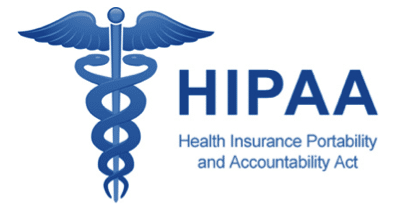
How often HIPAA training should be renewed varies based on roles and responsibilities, but annually is the common standard for most organizations. Covered entities handling PHI should conduct HIPAA training more frequently than once a year to stay up-to-date with the latest privacy and security practices.
Business associates, though they handle PHI less directly, are still required under the same section of the Security Rule to maintain regular training schedules. This ensures their workforce is well-informed about HIPAA compliance, especially in areas related to data security and breach prevention.
See also: How to know if you’re a business associate
Workforce roles and the frequency of HIPAA training renewal
For roles with high interaction with PHI, such as healthcare providers, nurses, and medical billing staff, it's necessary to conduct HIPAA training more frequently. This could mean bi-annual or even quarterly sessions to ensure these employees are up-to-date with the latest regulations, security practices, and privacy protocols, given their direct and continuous engagement with sensitive patient data. In contrast, roles with minimal interaction with PHI, like maintenance staff or those in non-patient-facing administrative positions, might require less frequent training updates, such as an annual refresher.
Triggers for additional or renewed HIPAA training
- Policy or regulation updates: Introduction of new HIPAA regulations or amendments to existing ones.
- Technology changes: Implementing new health IT systems or upgrading existing ones that handle PHI.
- Security incidents: Occurrence of a data breach, hacking attempt, or other security incident involving PHI.
- Compliance violations: Instances of non-compliance with HIPAA rules discovered during audits or regular operations.
- Employee role changes: When an employee transitions to a role with different PHI access or responsibility levels.
- New threats or vulnerabilities: Identification of new cybersecurity threats or vulnerabilities that could impact PHI security.
- Organizational changes: Significant changes in organizational structure, operations, or processes affecting PHI handling.
- Legal or litigation issues: Legal actions or proceedings related to HIPAA compliance or PHI breaches.
See also: How to train healthcare staff on HIPAA compliance
Consequences of not renewing HIPAA training
If an entity neglects to provide timely and adequate HIPAA training to its staff, it risks non-compliance with the HIPAA Privacy and Security Rules. Instances of non-compliance can attract scrutiny from the Department of Health and Human Services' Office for Civil Rights (OCR), potentially leading to investigations and audits. In cases where a lack of proper training contributes to a data breach or a privacy violation, the organization could face substantial fines. These fines vary based on the severity and nature of the violation, with maximum penalties reaching up to $1.5 million. Additionally, repeated or willful neglect of training requirements can result in criminal charges, leading to more severe legal consequences, including prison terms for responsible individuals.
See also: HIPAA Compliant Email: The Definitive Guide
FAQs
What is the difference between a HIPAA audit and HIPAA training?
The difference between a HIPAA audit and HIPAA training is that a HIPAA audit is a formal examination of an organization's compliance with HIPAA regulations, whereas HIPAA training is an educational process to inform and instruct staff about HIPAA rules and compliance requirements.
How often do organizations have to audit HIPAA?
Organizations should conduct an annual audit to ensure ongoing compliance with HIPAA regulations.
What is the key to HIPAA compliance?
The key to HIPAA compliance is implementing comprehensive privacy and security measures, regularly updating policies and procedures, conducting frequent training and audits, and ensuring consistent adherence to HIPAA guidelines across the organization.
Subscribe to Paubox Weekly
Every Friday we bring you the most important news from Paubox. Our aim is to make you smarter, faster.




